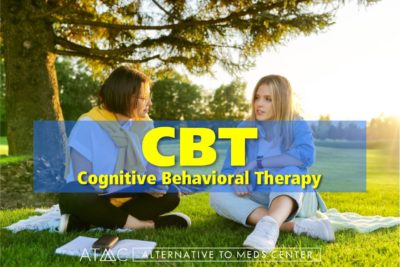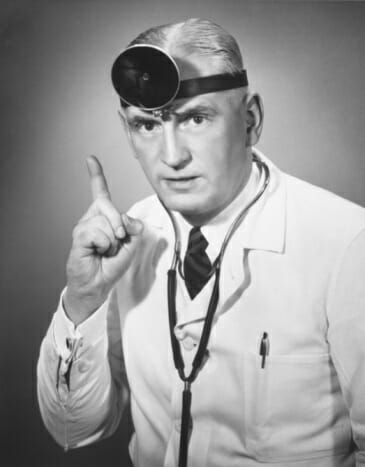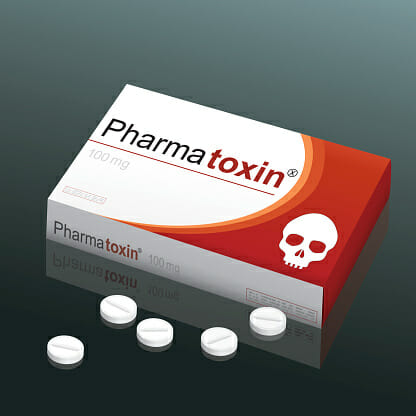The Difference a Collaborative Approach Can Make
Trust is earned, over time and through results, which is an entirely different concept than what is found in the authoritative approach. However, trust can be fostered in the collaborative approach to healthcare, often referred to as integrative medicine, which involves patient-centered and alternative medicine, blended with conventional treatment options.5,6
 This model works to empower patients in the healing process by asking for their input on the assessment, diagnosis, and treatment. It draws upon the individuals’ unique perspectives and insights into how they feel, what their condition presents, and the opportunity to choose the treatment option they feel most comfortable with.
This model works to empower patients in the healing process by asking for their input on the assessment, diagnosis, and treatment. It draws upon the individuals’ unique perspectives and insights into how they feel, what their condition presents, and the opportunity to choose the treatment option they feel most comfortable with.
The collaborative model places every patient as an important member of their treatment team, empowering them to care for themselves, and enlisting the help they opt to be the best for them. Isn’t that the point? The more a person chooses to exercise self-care in health matters, the more the patient-physician relationship will benefit for all the right reasons.
Our society places high esteem on licensed medical personnel and clinical practitioners, doctors especially. Today, more than ever, doctors have been viewed as the ultimate authority on anything medical concerning our bodies. We visit the hospital or the doctor’s office and then follow the recommended course of treatment, often without question. But something changes when our general practitioner pulls out a prescription pad and puts us on a drug; more specifically, a drug that puts us at risk of drug dependency, and we are sometimes told this will be necessary for a whole lifetime.
Despite the pressures of time and economics put on physicians, this alarming trend needs a second look.
Is this an abuse of power — perhaps on both patient and practitioner?
Although there is much work yet to be done, Alternative to Meds Center is pleased to see signs of a shift back to common sense in healthcare, greater educational opportunities for physicians and mental health workers, and a move away from the “quick-fix” approach that defaults to prescription drugs. We know that the improved education of health professionals will see great changes, positive ones, in the field of integrative medicine. A growing number of integrative health care professionals already know that mental health symptoms could be treated in other, safer ways.7
Evidence-based Nonpharmaceutical Options for Mental Health
Evidence-based nonpharmaceutical options for mental health can include:
We invite you to explore our services overview pages for many more holistic treatments offered at Alternative to Meds Center, used in a collaborative approach to improving mental health without relying on prescription drugs as a singular authoritative approach.
Patients Need to Own their Mental Health
For more than a century, we have been taught to take the advice of our doctor without question, which can lead to problems. Doctors today make it a practice of handing out medications liberally without much investigation, education, or collaboration with the patient. many of these valuable physicians simply have never been taught there are alternative approaches, and there are great benefits to a collaborative rather than an authoritative approach.
Statistics show the use of psychiatric medication is steadily on the rise. According to a report released by the CDC, 48% of the US population took at least one prescription drug in 2018, and 24% took 3 or more prescription drugs in 2018. The trend is not limited to the US. Published records in and outside the US on adult prescriptions indicate that the use of atypical antipsychotics in adults has soared, and of additional concern, a growing trend has emerged of off-label prescribing.8-10 This troubling shift continues all over the world today, though a growing interest in reversing this tendency has emerged.
As the number of psychiatric medications being prescribed in the US and around the world continues to grow, our awareness and self-advocacy will need to grow alongside. Patients cannot afford to blindly follow the advice offered in a quick, rushed consultation. Rather, they should question, investigate, and empower within to make the right choices for themselves and their loved ones. Every mental health treatment should be made in collaboration with the patient, not on their behalf. By implementing this collaborative approach to healing models, one can better ensure that one receives the care that is needed while feeling supported, respected, and heard. As it should be.
Learn More about the Benefits of Our Collaborative Approach to Care
 We have long been taught to trust our doctors. After all, they take an oath to “First, do no harm,” right? Has the doctor-patient relationship become moot as a result of the prescription drug frenzy that has seized healthcare?
We have long been taught to trust our doctors. After all, they take an oath to “First, do no harm,” right? Has the doctor-patient relationship become moot as a result of the prescription drug frenzy that has seized healthcare?
 Psychiatrist visits changed from 45-minute talk therapy sessions to 15-minute medication consultations, largely due to the way insurance companies structure their billing policies. How much can someone really know us after a 15-minute conversation? Apparently, well enough to prescribe a mood-altering substance that we may or may not develop a lifelong dependence on. It’s no wonder why a growing number of people have a toxic affair with prescription medications. Is there any other kind?
Psychiatrist visits changed from 45-minute talk therapy sessions to 15-minute medication consultations, largely due to the way insurance companies structure their billing policies. How much can someone really know us after a 15-minute conversation? Apparently, well enough to prescribe a mood-altering substance that we may or may not develop a lifelong dependence on. It’s no wonder why a growing number of people have a toxic affair with prescription medications. Is there any other kind? This model works to empower patients in the healing process by asking for their input on the assessment, diagnosis, and treatment. It draws upon the individuals’ unique perspectives and insights into how they feel, what their condition presents, and the opportunity to choose the treatment option they feel most comfortable with.
This model works to empower patients in the healing process by asking for their input on the assessment, diagnosis, and treatment. It draws upon the individuals’ unique perspectives and insights into how they feel, what their condition presents, and the opportunity to choose the treatment option they feel most comfortable with.







